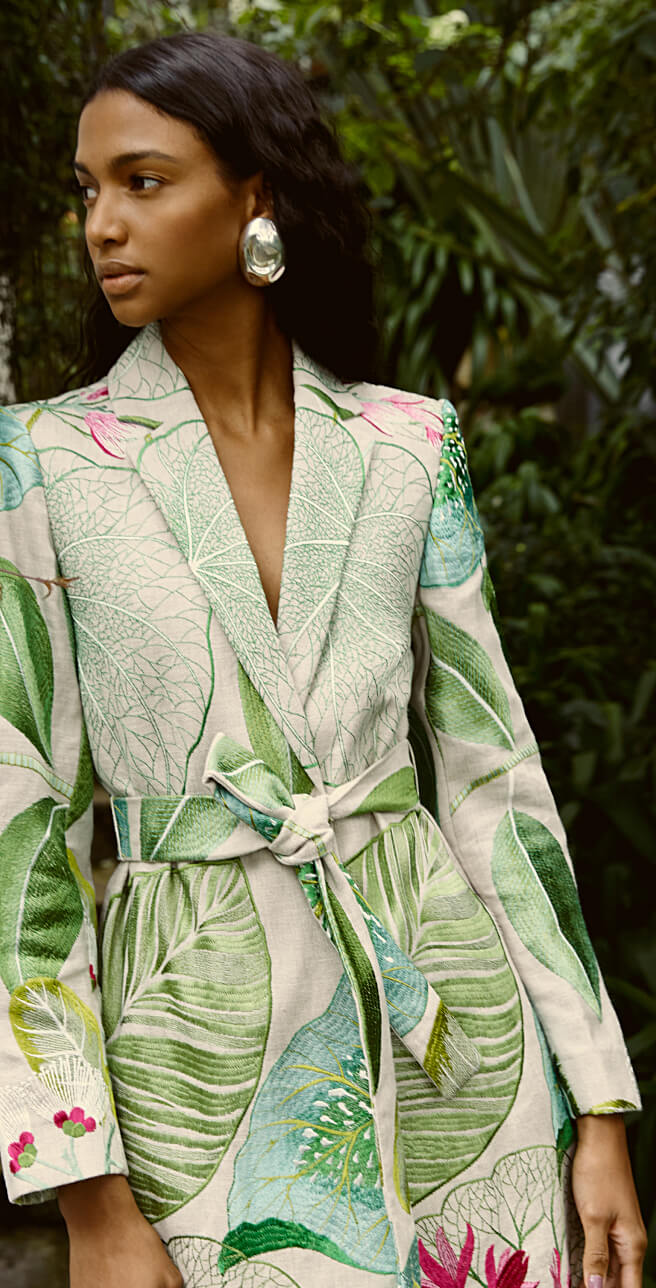Introduction
Jewelry that doubles as a perfume vial, or a perfume vial that doubles as jewelry. Any way you look at it, you’ll find that Monolito’s lightweight geometric pieces are the perfect merger of practicality, style and craftsmanship. The idea dates back to ancient times, when Egyptians developed adornments that incorporated scents. Andrea Vargas Dieppa’s modern take on this custom consists of vials that can be worn as necklaces or rings and which are filled with a bespoke fragrance; when opened, a small applicator allows you to dab it on your skin. The scent was created by master perfumer Barnabé Fillion —who’s also worked with Comme des Garçons, Paul Smith and Aesop— and fuses juniper and jasmine with a base of myrrh and suede.
Dieppa’s square and sphere-shaped sculptures are inspired by the contrasting concepts of the masculine and the feminine, as well as by pre-Columbian depictions of Venus. Crafted by experienced silversmith artisans in Dieppa’s native Colombia, they are also available in regular perfume bottle size —though there’s certainly nothing regular about these miniature works of art. The designer also partners with local carvers and carpenters to develop her homeware line. Because Monolito’s mirrors, tables and stools are handcrafted out of salvaged cedar wood or the native gusanillo tree, every piece is unique and bears the marks of the artisan who developed it.

Handcrafted from recycled materials
Monolito celebrates traditional craftsmanship while also creating pieces for a sustainable future. The perfume vials are made from reclaimed materials, mainly alpaca silver, which is a metal alloy composed of copper, zinc and nickel. It’s extremely durable and it doesn’t rust, nor does it need to be coated to protect its silver-grey tone. Select styles are also gold plated using discarded gold that is melted down and reused.
In the creation of both their jewelry and their furniture lines, Monolito works continuously with eleven master artisans of different disciplines that include metalsmiths, carpenters, wood carvers, weavers and upholsterers. For Dieppa, bringing artisanal craft into everyday utility means appreciating the uniqueness of each handmade piece, as well as the time, skill and dedication they require: an expert silversmith, for example, needs 15 hours to finish a single perfume vial.
“For us, even the smallest details count in terms of design and the social and environmental impact each object holds. From manufacturing to packaging, our idea is to leave the smallest footprint.
— Andrea Vargas Dieppa, founder























